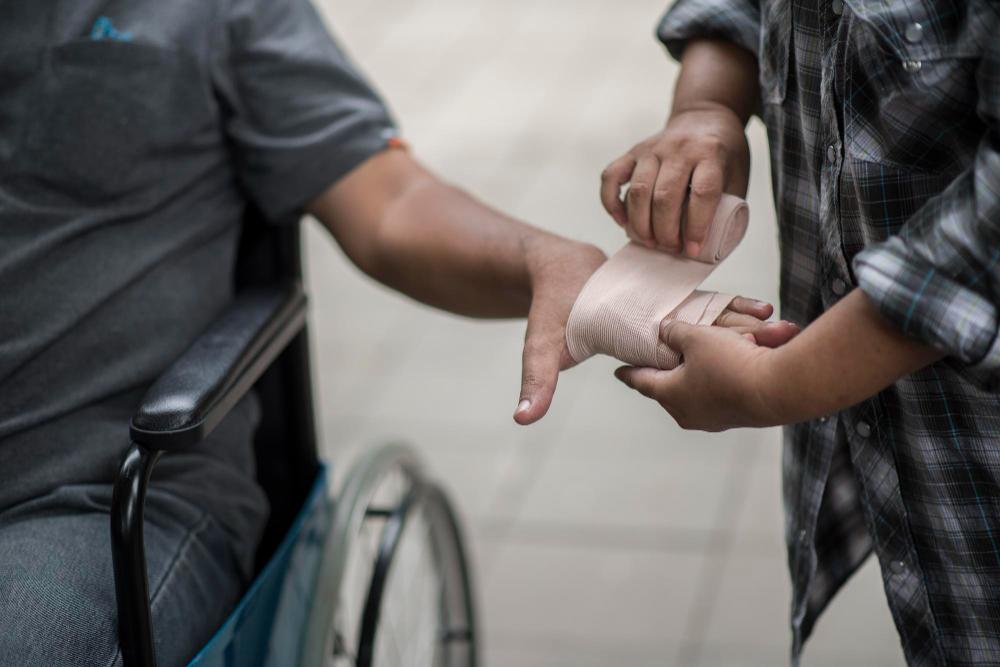

MAY 02, 2024
Scrap metal recycling is an invaluable activity for preserving resources while decreasing environmental pollution. Used metal is melted down and reused in various applications for new uses, which helps conserve natural resources while decreasing pollution levels. However, handling and recycling scrap metal may pose risks. In this article by RCM Recycling, we explore common injuries associated with recycling operations and ways to avoid them.
Cut and abrasions are one of the primary injuries sustained in the scrap metal industry. Because scrap metal contains sharp edges that can penetrate the skin easily, workers handling scrap may suffer minor or serious lacerations injuries when handling scrap.
Prevention Tips: Always wear protective clothing when handling scrap metal. Be wary of sharp edges when handling any piece. Keep the working area clutter-free to prevent accidental cuts.
Recycling activities pose the potential risk of eye injuries to anyone near it, not just those directly handling metal. This risk should not be overlooked.
Prevention Tips: Always wear safety goggles or face shields while working around scrap metal. Also, ensure all safety equipment is working and replace anything damaged immediately. Stay at a distance when metal cutting or crushing operations occur to minimize injury to workers and bystanders.
Handling heavy scrap metal can result in muscle strains and sprains for workers lifting them improperly or unaided, often due to being lifted improperly or without assistance. These injuries often arise as workers attempt to move these objects without assistance from other coworkers.
Prevention Tips: Incorporate lifting equipment when moving heavy pieces of scrap metal. Utilize proper lifting techniques: bend at the knees while keeping your back straight for optimal lifting results. Work in teams for especially difficult or awkward pieces.
Large piles of metal may become unstable at scrap metal companies when not managed correctly and shift accidentally, potentially leading to crushing injuries in areas with heavy machinery used for moving or compressing metal. Crushing injuries, in particular, pose the highest threat when handling machinery for moving and compressing it.
Prevention Tips: Remember your surroundings when working near large piles of metal, adhere to all safety protocols for using heavy machinery, and never stand between moving equipment and fixed structures.
Scrap metal may contain rusty and old pieces that pose the threat of tetanus infection—an extremely severe bacterial disease affecting the nervous system that enters through cuts or punctures from rusty metal pieces. Tetanus infections may become infected after sharp objects are punctured or cut on scrap metal materials that become exposed during assembly processes or use.
Prevention Tips: Make sure your tetanus vaccinations are current. Clean and disinfect any wounds sustained when handling scrap metal. Wear long sleeves and thick gloves to minimize the risk of being cut by the sharp edges of rusty metal objects.
Repetitive noise exposure associated with scrap metal recycling machinery can contribute to hearing loss over time, an increasingly prevalent concern across many industrial environments - and no exception in scrap metal recycling in Jackson! This problem is no exception and only gets more dangerous over time in scrap metal industries like this one.
Prevention Tips: For optimal hearing protection in noisy environments, always wear hearing protection such as earplugs or earmuffs when operating machinery that could produce loud sounds. Also, limit exposure time as much as possible and take regular breaks away from loud noises.
Achieving safety while working with scrap metal requires awareness and training. A scrap metal buyer or anyone involved with the industry should understand any hazards they might face as they manage them effectively.
Scrap metal recycling is an invaluable practice that supports environmental sustainability. Still, those involved must take every precaution possible to safeguard their well-being as part of this process, whether at a scrap metal company or elsewhere. By following the safety tips outlined here and staying current on industry best practices, workers can help mitigate injury risk while creating a more pleasant working environment for themselves and their colleagues.